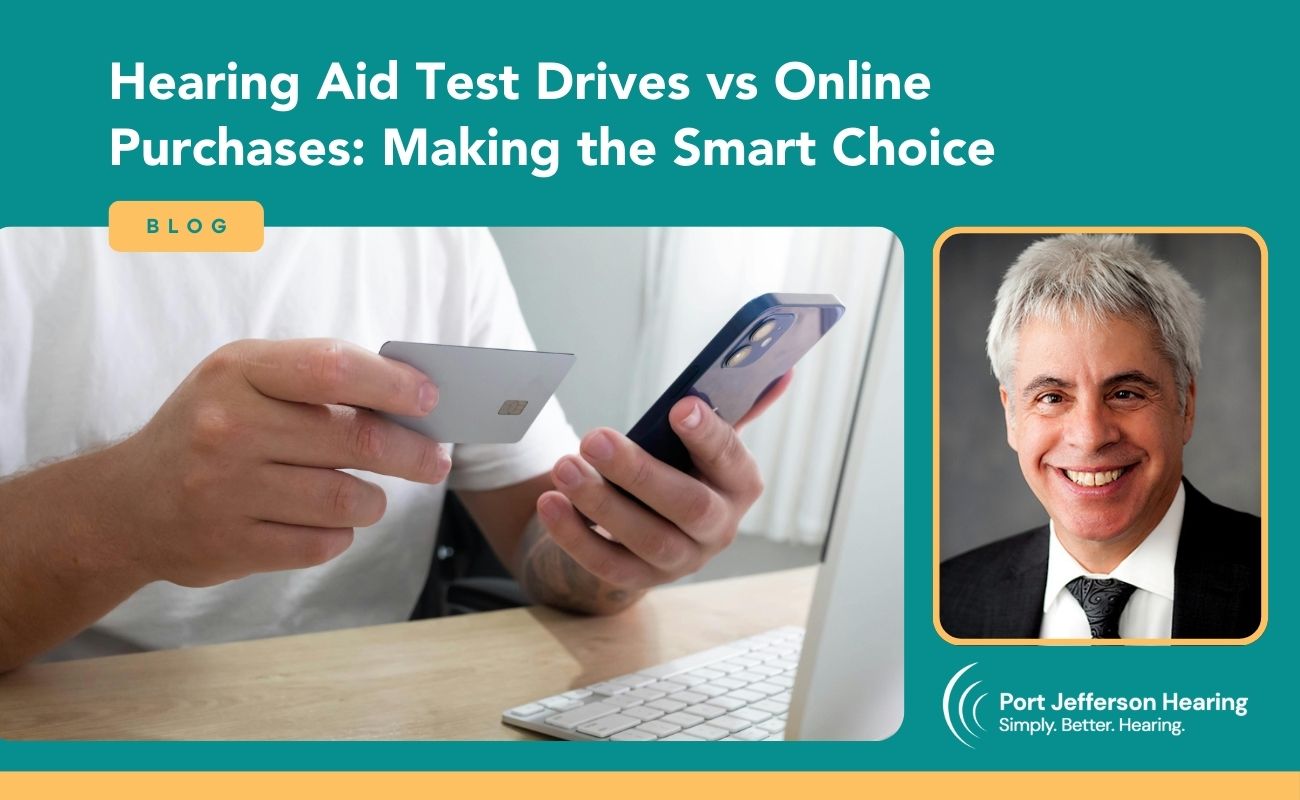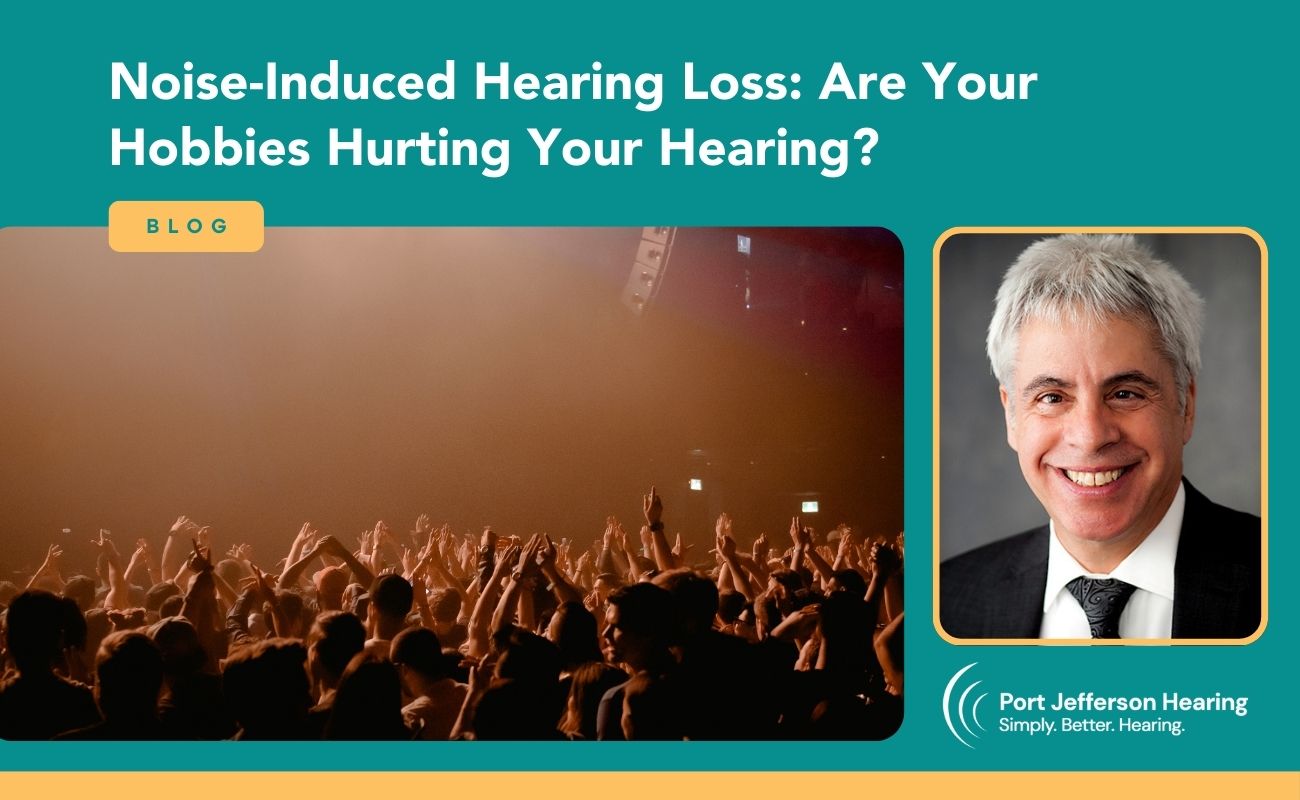How Modern Hearing Aids Enhance Brain Health

Hearing connects our brain to the world around us. When we can't hear well, this connection weakens, and our brain can suffer. At our Port Jefferson office, we see the impact of hearing loss on brain function every day, and we're passionate about helping our patients maintain their cognitive health with the right hearing technology.
Your Brain Needs Sound
Our ears pick up sounds, but our brain does the real work of making sense of them. When hearing loss occurs, your brain gets less information to work with. Research has linked untreated hearing loss with cognitive decline and even increased risk of dementia. A Johns Hopkins study found that mild hearing loss doubled dementia risk, while severe hearing loss increased it five-fold.
The good news? Today's hearing aids can help. They restore sound to your brain, providing the stimulation it needs to stay sharp. Many of our patients tell us they feel more mentally alert after getting properly fitted hearing aids.
Less Mental Effort, More Brain Power
Remember how exhausted you felt the last time you tried to follow a conversation in a noisy restaurant? That mental fatigue comes from your brain working overtime to fill in missing sounds.
One patient recently told us, "Before my hearing aids, family dinners were so draining I'd need a nap afterward. Now I can enjoy the whole evening without that mental exhaustion."
Knowing Where Sounds Come From
Think about how important it is to know if someone is calling you from the kitchen or the living room. Or whether a car is approaching from the left or right before you cross the street.
Hearing loss often makes it harder to place where sounds are coming from. Modern hearing aids help solve this problem.
More Than Just Speech
Today's hearing aids connect to your phone, TV, and other devices. This means you can stream music, audiobooks, phone calls, and more directly to your ears.
This connectivity does more than just make life convenient. Research suggests that auditory stimulation through music and speech helps maintain cognitive function. Each time you listen to music or an audiobook, you're giving your brain valuable exercise.
All three brands we offer – Signia, ReSound, and Oticon – provide seamless connectivity options. ReSound and Signia feature the latest Bluetooth LE Audio and Auracast technology, while Oticon offers direct audio streaming from smart devices. These features help keep your brain engaged with a variety of stimulating sounds beyond just everyday conversation.
Smart Technology That Learns From You
Today's hearing aids are much more than simple amplifiers. They're smart enough to learn what you want to hear.
ReSound's AI-Powered Sound Processing
The ReSound Vivia we offer uses AI technology trained on millions of conversations. Its Deep Neural Network (DNN) helps your brain by performing trillions of operations daily to spotlight speech and reduce noise. Research shows that this kind of advanced signal processing reduces the cognitive load on your brain.
The Intelligent Focus feature in ReSound Vivia prioritizes sounds based on where you're looking. This intuitive approach works with your brain's natural attention system, making it easier to focus on what you want to hear without mental strain.
ReSound Vivia's M&RIE (Microphone and Receiver-in-Ear) technology combines traditional hearing aid microphones with an in-ear microphone. This preserves the natural acoustic cues your brain uses to locate sounds, helping you maintain spatial awareness without extra cognitive effort.
Signia's Multi-Stream Architecture
The Signia IX hearing aids we fit at our office use a revolutionary multi-stream architecture that tracks multiple speakers in real-time. This advanced feature reduces listening effort by separating speech from background noise automatically. Your brain doesn't have to work as hard sorting through sound, leaving you with more mental energy for engaging in conversations.
Signia's Augmented Focus technology divides sound into two separate processing streams – one for speech and one for background noise. These streams are then recombined, making speech stand out clearly against a more natural background. This means your brain receives clearer signals that require less effort to process.
Oticon's BrainHearing Technology
The Oticon Intent uses advanced BrainHearing technology that supports your brain's natural way of making sense of sound. Its 4D Sensor technology captures inputs from your conversations, movements, and surroundings to deliver sound in a way that works with – not against – your brain's natural processes.
The Intent-Based Spatial Balancer helps your brain distinguish between different sound sources, while their Virtual Outer Ear technology provides natural sound directionality. These features reduce the cognitive effort needed to locate sounds, helping you stay mentally sharp even in complex listening environments.
Oticon's Deep Neural Network 2.0, trained on millions of real-life sounds, helps your brain by delivering exceptionally clear sound. This technology is designed specifically to support the way your brain naturally processes sound patterns, reducing the mental effort of listening.
Getting The Perfect Fit Matters
We use Real Ear Measurement for all our hearing aid fittings at Port Jefferson Hearing. This technology measures the actual sound levels at your eardrum, so we can adjust your hearing aids to your specific ear shape.
Why does this matter for brain health? Studies show that properly fitted hearing aids provide the right amount of stimulation to the brain. When sound is delivered at the right levels for your specific hearing loss, your brain gets exactly what it needs—not too much, not too little. While only about a third of hearing practices use this technology, we consider it essential for both hearing clarity and cognitive benefits.
Try Before You Decide
Everyone's brain processes sound differently. That's why we let you test drive hearing aids before making a decision.
During your test drive, you'll try advanced hearing technology in real-world settings that matter to you. Whether it's a family gathering, your favorite restaurant, or a walk in your neighborhood, you'll discover which technology feels most natural for your brain.
You might find that Signia's speech clarity works best for your book club meetings, while ReSound's natural sound quality feels right for family gatherings, or Oticon's intuitive performance matches your active lifestyle. This real-world experience helps us find the perfect match for your unique brain and hearing needs.
Don't Wait Too Long
We often see patients who've struggled with hearing loss for years before coming to see us. Research shows the longer you wait, the harder it can be for your brain to readjust.
A study published in the Journal of the American Geriatrics Society found that hearing aid use was associated with a 19% reduction in long-term cognitive decline. When you address hearing loss early, you're giving your brain its best chance to maintain connections that might otherwise weaken over time.
Come See Us at Port Jefferson Hearing
If you're concerned about your hearing and brain health, we'd love to help. Dr. Martinetti has over 30 years of experience helping Suffolk County residents maintain both hearing clarity and cognitive well-being.
We'll take the time to understand your specific needs and find the right hearing solution for you. Whether it's the latest Signia IX, ReSound Vivia, or Oticon Intent technology, we'll make sure you get the support your brain needs to stay sharp.
Give us a call at 631-331-1888 to schedule your hearing evaluation. Your brain will thank you for it, and so will your family and friends who've been waiting to connect with you again.
Discover Our Latest Blogs
Stay informed with our insightful blog posts.
Hearing Aid Trials With No Financial Obligation
At Port Jefferson Hearing we believe the only way to know which hearing aid is right for you is to experience the benefits in your day-to-day life. That is why we created a hassle-free, no pressure process that truly puts you in the drivers seat.





